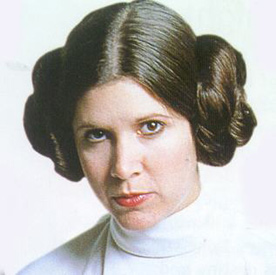A Guide to Writing
cynthia gregory
One way to journal is to forget everything you know about the place where you live. You learn to look at the world as if you just popped through a worm hole from some other verdant, vividly lush and distant planet. Instead of going about your regular routines, I bet you would begin to really see the world you inhabit.
How many times do you go about your business and then suddenly realize that you can’t remember the last ten minutes? That you had been on autopilot, with your body operating the family car, stopping at lights and pausing for pedestrians while your mind had zipped off to distant canyons and gullies of memory and illusion? You’ve arrived safely and no one was hurt, thank goodness, but what would happen if you were fully embodied, fully present, each day of your life? Would you see the world differently? My vote is yes.
It’s a fact that we do not cultivate the practice of notice very well. We are bombarded by television, radio, the Internet, literally thousands of messages a day and so it’s natural that we begin to shut down. In many cases, shutting down is a natural mechanism of survival. The trouble is, once you begin to shut out the ugly of the world, you inevitably begin to shut out the beautiful and remarkable and miraculous, too.
In Eastern traditions people are taught to breathe mindfully. They are taught to sit quietly and focus on their breath for five, ten, fifteen minutes or more. They are taught to let their thoughts go, like confetti in a balloon, to just float away. If minutes pass and you realize that you have got caught up in your thoughts again you simply put those thoughts in a balloon, release them, and return to focusing on your breath. This is a powerful practice, one I heartily advocate not only because it inevitably brings you to a state of poise and charm, but because when you then turn your attention to the world around you again, it looks fresh and clean and lit from within. This is an excellent perspective to bring to your journaling.
So instead of tuning the world out, set the dial on high and tune it in. Begin to notice things like what is the sound of your breath entering and exiting your body? Is it a soft hush or is it a turgid gasp? Listen to your breath for five minutes and then begin to notice the other sounds you’ve been filtering out. Do you hear the sound of warm air blowing through the vents to heat the room? The ticking of the mantle clock in the den? Can you distinguish between the sound of a car going by outside and a truck? Does the lamp you’re writing under emit a faint buzzing noise?
Put yourself on a notice diet: but notice more, not less. Go for a walk and pay attention. How many varieties of garden sculpture do your neighbor’s exhibit? What kinds of flowers are in bloom just now? Have you noticed the faces of the people waiting at the bus stop just as someone who has a story that is probably quite interesting if you had a chance to ask?
Almost no one I’ve ever talked to about it thought their story was interesting. But I’m telling you, their story is remarkable. They just stopped noticing the details. They forgot that their life was miraculous in about a million ways.
So where’s an idea: write about your life like you don’t own it. Write about last Christmas like you’re a staff writer at a big agency and you’re creating a storyboard for a movie that will be seen around the world and sent into space by powerful satellites and viewed by people who have no idea what Santa is about, and why people decorate trees with shiny glass orbs. Explain what your house looks like as if you were describing it to a blind person. Paint a picture with words to describe your dog to a boy who has never seen a dog in his life. Illustrate a journal entry about last night’s dinner with words so smoky and succulent that your nostrils twitch and your stomach yowls. Visit your local grocery store like you’re a tourist from Hungary. Have you ever noticed, really noticed how many different brands of bread there are? How many varieties of potato chips are sold? Go to your local Chamber of Commerce and ask for a directory of its members and marvel that people do the kinds of jobs they do. Lick the inside of your wrist and then sniff it to see what your breath smells like.
Stop living on auto-pilot. Cultivate an appreciation for each Now that shows up. Now, I reach for my water bottle and the cool liquid slides down my throat. Now, my fingers pull away the skin of an orange. Now, I call on inspiration and she takes my hand and we walk.




